| Block 1: Introduction | |
|
19 September 3-4:30 pm |
Course introduction: Advancing Predictive Capability of Northern Hemisphere Weather and Climate Speaker: Thomas Jung (Alfred Wegener Institute for Polar and Marine Research, Germany) Watch the session recording here. |
|
26 September 2-3:30 pm |
Stakeholder engagement and example of APPLICATE case studies Speaker: Marta Terrado & Dragana Bojovic (Barcelona Supercomputing Center, Spain) Watch the session recording here. |
|
3 October 2-3:30 pm |
Boundary layer, clouds and air mass transformation Speaker: Gunilla Svensson (Stockholm University, Sweden) Watch the session recording here. |
| Block 2 - Data and modelling | |
|
17 October 2-3:30 pm |
Observing system design in the Arctic Speaker: Taneil Uttal (National Oceanic and Atmospheric Administration, United States) Watch the session recording here. |
|
24 October 2-3:30 pm |
The use of Arctic observations in Numerical Weather Prediction Speaker: Heather Lawrence (European Center For Medium Range Weather Forecasts, United Kingdom) Watch the session recording here. |
|
31 October 3-4:30 pm |
Seasonal to decadal prediction: recent progress and the signal-to-noise paradox Speaker: Doug Smith (MetOffice, United Kingdom) Watch the session recording here. |
|
7 November 3-4:30 pm |
Arctic weather phenomena and extremes Speaker: Thomas Spengler (University of Bergen, Norway) Watch the session recording here. |
| Block 3 - Arctic | |
|
14 November 2-3:30 pm |
Polar ocean forecasting Speaker: Arlan Dirkson (Université du Québec à Montréal, Canada) Watch the session recording here. |
|
21 November 3-4:30 pm |
Challenges and priorities for improved prediction and climate monitoring of the Arctic Speaker: Irina Sandu (European Center For Medium Range Weather Forecasts, United Kingdom) Watch the session recording here. |
|
28 November 3-4:30 pm |
Evaluating models Speaker: Barbara Casati (Environmental and Climate Change Canada) Watch the session recording here. |
|
4 December 2-3:30 pm |
Presentation of the course participant case studies Watch the session recording here. |
|
5 December 2-3:30 pm |
APPLICATE and the Year Of Polar Prediction (YOPP) Speaker: Jonny Day (European Center For Medium Range Weather Forecasts, United Kingdom) Watch the session recording here. |
APECS-APPLICATE-YOPP Online Course 2019
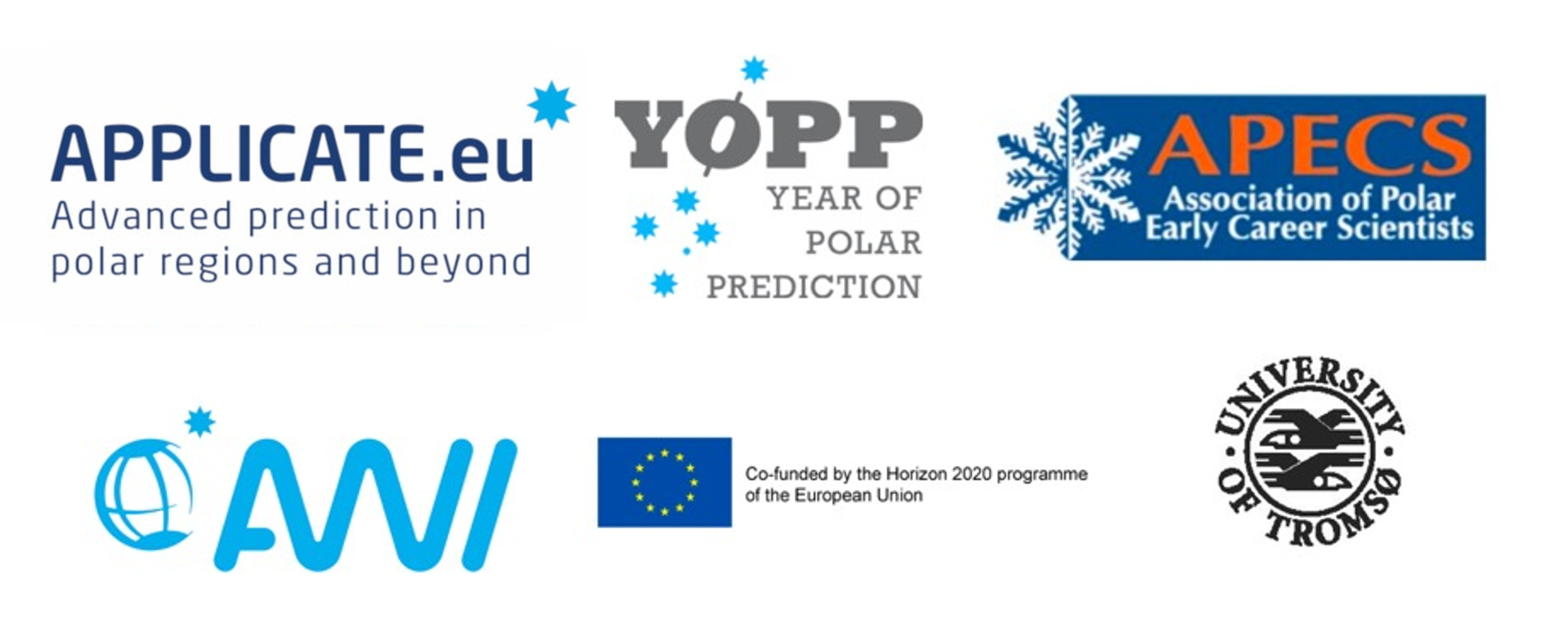 The Association of Polar Early Career Scientists (APECS), in collaboration with the APPLICATE (Advanced Prediction in Polar regions and beyond: modelling, observing system design and LInkages associated with a Changing Arctic climaTE) project and the Year of Polar Prediction (YOPP) organised a free online course on "Advancing Predictive Capability of Northern Hemisphere Weather and Climate” that took place from September to December 2019.
The Association of Polar Early Career Scientists (APECS), in collaboration with the APPLICATE (Advanced Prediction in Polar regions and beyond: modelling, observing system design and LInkages associated with a Changing Arctic climaTE) project and the Year of Polar Prediction (YOPP) organised a free online course on "Advancing Predictive Capability of Northern Hemisphere Weather and Climate” that took place from September to December 2019.
About the partners: APPLICATE is one of the projects within the EU Arctic Cluster, a network of projects funded through the EU Horizon 2020 and Framework Programme 7. The scope of APPLICATE is to improve weather and climate predictions in the Arctic. Studying the influence of Arctic climate change on Northern Hemisphere mid-latitudes, APPLICATE fosters engagement with policy makers, industry and other stakeholder groups who benefit from improved predictive capacity in Arctic regions. The Year of Polar Prediction (YOPP) is the flagship activity of the World Meteorological Organization (WMO)' s Polar Prediction Project with the aim of enabling a significant improvement in environmental prediction capabilities for the polar regions and beyond, by coordinating a period of intensive observing, modelling, verification, user-engagement and education activities. APPLICATE is one of the key projects endorsed by the Year of Polar Prediction.
About the course: The course was a training activity within the APPLICATE project (Work Package 7: User engagement, dissemination and training) and the Year of Polar Prediction education effort. An introduction to APPLICATE`s research focus and goals can be found in these three webinars. The online course was designed for early career researchers (e.g., Master and PhD students, Postdocs) with a specific interest in Arctic weather and climate prediction and modelling.
This course provided an overview of the state-of-the-art knowledge of Northern high-latitude weather and climate predictions; including aspects relevant for the Arctic climate system; and linkages between Arctic and mid-latitude/global weather. The topics included an overview of the observing system design in the Arctic, current methods in weather and climate predictions and how predictive skill can be improved. An important aspect of the course were Arctic extreme weather phenomena and engagement of stakeholders who are using weather and climate predictions in their daily operations.
This course was supported through the APPLICATE project that received funding from the European Union’s Horizon 2020 research and innovation programme under grant agreement No 727862, the Year of Polar Prediction, the Association of Polar Early Career Scientists (APECS), the Alfred Wegener Institute, Helmholtz Center for Polar and Marine Research, and UiT The Arctic University in Tromsø.
© Photos by Fiona Tummon and Gerlis Fugmann from the Polar Prediction School 2018
Our speakers
-
Thomas Jung - Alfred Wegener Institute for Polar and Marine Research, Germany
 Thomas works at the Alfred Wegener Institute, Helmholtz Centre for Polar and Marine Research in Germany. He has received his PhD in atmospheric physics from University of Kiel and the Institute for Marine Research (now GEOMAR). He then went on to work for 10 years in the Research Department of the European Centre for Medium-Range Weather Forecasts (ECMWF) in the UK. Thomas is head of the Climate Dynamics section at AWI and full professor for physics of the climate system at the University of Bremen. Thomas coordinates major research projects such as APPLICATE, which is funded through the EU Horizon2020 program. Thomas is an expert in the analysis, modelling and prediction of the climate system. Currently his work is focusing on the development of a new generation Earth system models that effectively and realistically simulate critical processes, such as ocean eddies, along with their impact on climate. By doing so, Thomas and his group exploit some of the largest high performance computing systems in the world.
Thomas works at the Alfred Wegener Institute, Helmholtz Centre for Polar and Marine Research in Germany. He has received his PhD in atmospheric physics from University of Kiel and the Institute for Marine Research (now GEOMAR). He then went on to work for 10 years in the Research Department of the European Centre for Medium-Range Weather Forecasts (ECMWF) in the UK. Thomas is head of the Climate Dynamics section at AWI and full professor for physics of the climate system at the University of Bremen. Thomas coordinates major research projects such as APPLICATE, which is funded through the EU Horizon2020 program. Thomas is an expert in the analysis, modelling and prediction of the climate system. Currently his work is focusing on the development of a new generation Earth system models that effectively and realistically simulate critical processes, such as ocean eddies, along with their impact on climate. By doing so, Thomas and his group exploit some of the largest high performance computing systems in the world. -
Dragana Bojovic - Barcelona Supercomputing Center, Spain
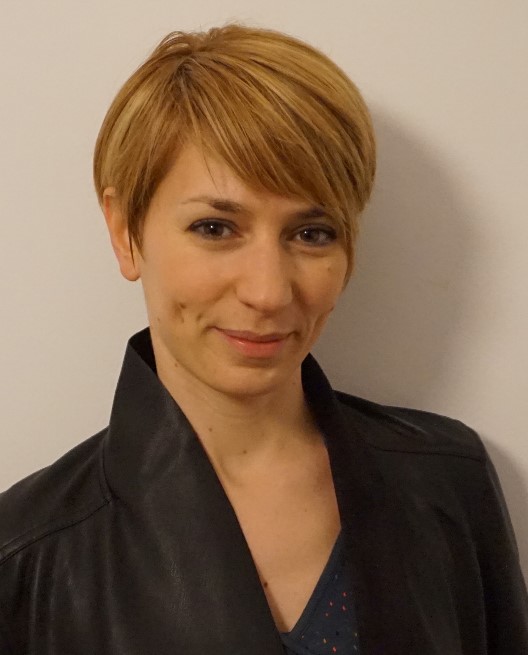 Dragana has 15 years of experience in working on decision support for global environmental change. She has been collaborating with scientists, policy-makers and communities from different parts of the world, supporting knowledge transfer to enhance resilience to climate and other socio-ecological changes. Since 2016, Dragana has been working as a social scientist involved in climate services coproduction at BSC’s Earth Sciences Department. She holds a PhD in Science and Management of Climate Change (Ca’Foscari University of Venice) and a MSc in Environmental Change and Management (Oxford University).
Dragana has 15 years of experience in working on decision support for global environmental change. She has been collaborating with scientists, policy-makers and communities from different parts of the world, supporting knowledge transfer to enhance resilience to climate and other socio-ecological changes. Since 2016, Dragana has been working as a social scientist involved in climate services coproduction at BSC’s Earth Sciences Department. She holds a PhD in Science and Management of Climate Change (Ca’Foscari University of Venice) and a MSc in Environmental Change and Management (Oxford University). -
Marta Terrado - Barcelona Supercomputing Center, Spain
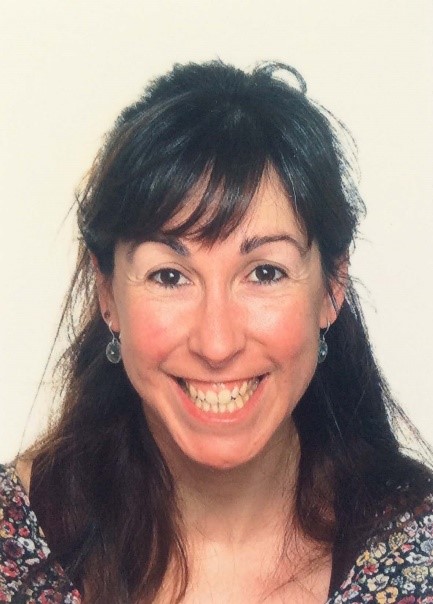 Marta has an experience of more than 10 years in agriculture, water management and ecosystem services research. She is Science Communication Specialist at BSC’s Earth Science Department, supporting activities on communication, dissemination and user engagement. Working in the co-production of climate services, Marta facilitates knowledge transfer for climate change adaptation at the science-stakeholders interface. She has a PhD in Earth Sciences (University of Barcelona) and a Master’s degree in Geographical Information Systems (Polytechnic University of Catalonia).
Marta has an experience of more than 10 years in agriculture, water management and ecosystem services research. She is Science Communication Specialist at BSC’s Earth Science Department, supporting activities on communication, dissemination and user engagement. Working in the co-production of climate services, Marta facilitates knowledge transfer for climate change adaptation at the science-stakeholders interface. She has a PhD in Earth Sciences (University of Barcelona) and a Master’s degree in Geographical Information Systems (Polytechnic University of Catalonia). -
Gunilla Svensson - Stockholm University, Sweden
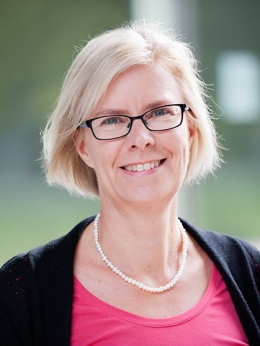 Gunilla’s research interests range from atmospheric boundary-layer turbulence and clouds to global scale circulation. Based at the University of Stockholm in Sweden, she develops and applies numerical models for small-scale atmospheric processes and studies the effect of these processes on atmospheric circulation patterns. She is particularly interested in the Arctic climate and climate change and is leading the Year of Polar Prediction (YOPP) Task Team on processes.
Gunilla’s research interests range from atmospheric boundary-layer turbulence and clouds to global scale circulation. Based at the University of Stockholm in Sweden, she develops and applies numerical models for small-scale atmospheric processes and studies the effect of these processes on atmospheric circulation patterns. She is particularly interested in the Arctic climate and climate change and is leading the Year of Polar Prediction (YOPP) Task Team on processes. -
Taneil Uttal - National Oceanic and Atmospheric Administration, United States
Taneil has been working for the U.S. National Oceanic and Atmospheric Administration (NOAA) research laboratories since 1978. Her work has centered on the development and analysis of state-of-the-art observations of the atmosphere. This has included studies of clouds with aircraft and ground-based radars, lidars and radiometers and integrated suites of instruments for measuring all components of the surface energy budget. She was the lead investigator on NOAA, NSF and NASA projects during the 1997-1998 Surface Heat Budget of the Arctic (SHEBA) expedition centered on an ice-breaker frozen into the Arctic Ocean. This marked the beginning of her focus on Arctic studies. Since then she has developed an International Polar Year (IPY) consortium (International Arctic Systems for Observing the Atmosphere - www.IASOA.org) that has networked the observing capabilities and science expertise of the existing land-based atmospheric observatories that ring the Arctic Ocean. She in particular has been the U.S. partner (with Russia and Finland) in establishing the Tiksi, Russia observatory and (with Canada) in developing the Eureka and Alert, Canada observatories. She is currently preparing to deploy on the MOSAiC expedition ice-drift for the deep winter phase (Dec-Jan-Feb). Her current interests are networking atmosphere-ocean-ice-terrestrial measurements to obtain an integrated understanding of the total Arctic system. She is the leader of the NOAA Earth Systems Research Laboratory, Physical Science Division, Polar Observations and Processes Team.
-
Heather Lawrence - European Center For Medium Range Weather Forecasts, United Kingdom
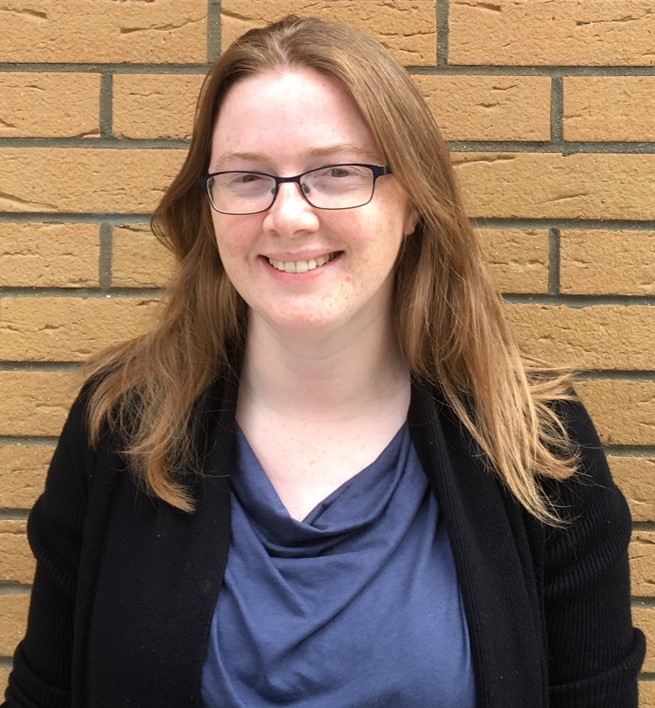 Heather received her bachelor's and master's degrees in Physics from the University of Cambridge in 2005 and her Ph.D. in Physics from the University of Bordeaux in 2010, where she worked on modelling the L-band microwave emission of land surfaces. During 2011 - 2012 Heather worked on soil moisture and vegetation optical depth retrievals from the Soil Moisture and Ocean Salinity (SMOS) satellite mission, at the Centre d'Etudes Spatiales de la BIOsphère (CESBIO), Toulouse, and the University of Valencia. In 2013 she joined the European Centre for Medium-Range Weather Forecasting (ECMWF) to work on the assimilation of microwave atmospheric sounding data for Numerical Weather Prediction. Her interests include the calibration/validation of new satellite instruments, data assimilation for numerical weather prediction and radiative transfer modelling, including of land and ocean surfaces.
Heather received her bachelor's and master's degrees in Physics from the University of Cambridge in 2005 and her Ph.D. in Physics from the University of Bordeaux in 2010, where she worked on modelling the L-band microwave emission of land surfaces. During 2011 - 2012 Heather worked on soil moisture and vegetation optical depth retrievals from the Soil Moisture and Ocean Salinity (SMOS) satellite mission, at the Centre d'Etudes Spatiales de la BIOsphère (CESBIO), Toulouse, and the University of Valencia. In 2013 she joined the European Centre for Medium-Range Weather Forecasting (ECMWF) to work on the assimilation of microwave atmospheric sounding data for Numerical Weather Prediction. Her interests include the calibration/validation of new satellite instruments, data assimilation for numerical weather prediction and radiative transfer modelling, including of land and ocean surfaces. -
Doug Smith - MetOffice, United Kingdom
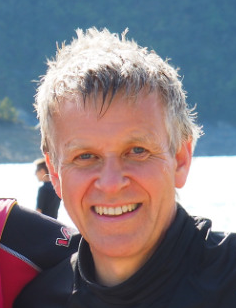 Doug leads the decadal climate prediction research and development at the Met Office Hadley Centre. Since joining the UK Met Office in 1997, Doug has developed the Met Office Decadal Climate Prediction System: DePreSys, leading the decadal prediction team since 2008. Before that, Doug worked on satellite remote sensing of sea ice and rainfall at University College London and the University of Bristol. Doug obtained a BSc in Mechanical Engineering, and a PhD in computational fluid dynamics from Imperial College London.
Doug leads the decadal climate prediction research and development at the Met Office Hadley Centre. Since joining the UK Met Office in 1997, Doug has developed the Met Office Decadal Climate Prediction System: DePreSys, leading the decadal prediction team since 2008. Before that, Doug worked on satellite remote sensing of sea ice and rainfall at University College London and the University of Bristol. Doug obtained a BSc in Mechanical Engineering, and a PhD in computational fluid dynamics from Imperial College London. -
Barbara Casati - Environment and Climate Change Canada, Canada
Barbara obtained her PhD on forecast verification methods in 2004 from the University of Reading (UK). She then consolidated her research interests at Environmental and Climate Change Canada (ECCC), first as a post-doc (2004-2007), and then in her current position of Research Scientist in verification and post-processing. She worked also on statistical analysis of extreme events with application to climate models (Ouranos, Montreal, 2007-2013). Barbara has been one of the founding members of the WMO Joint Working Group in forecast Verification Research (JWGFVR), and since 2016 she brings her strong expertise in forecast verification into the PPP Steering Group.
-
Arlan Dirkson - Université du Québec à Montréal, Canada
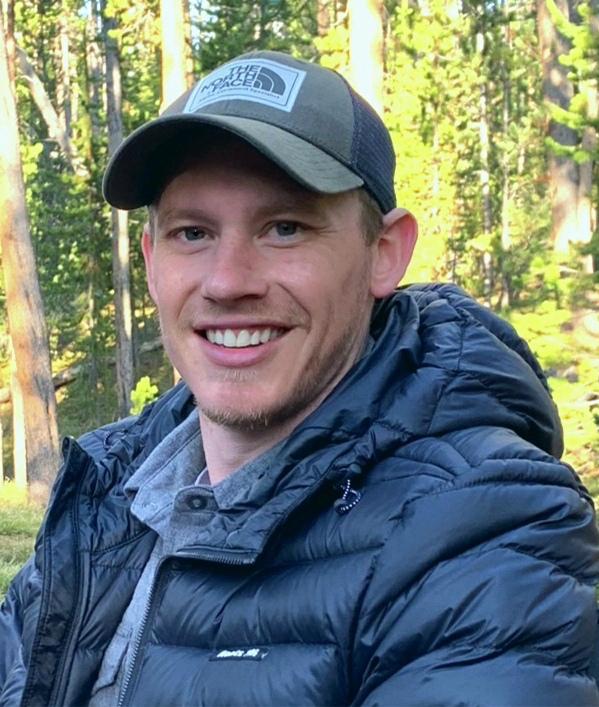 Arlan began working on polar climate at the University of Montana while completing his Bachelor’s degree in Applied Mathematics with a Minor in Geosciences. During that time, he worked closely with a team of glaciologists on topics related to ice sheets, which allowed him to also enjoy a summer field season in Greenland. Arlan then completed his PhD at the University of Victoria, where he carried out a body of research targeted toward improving seasonal Arctic sea ice predictions using the operational seasonal forecasting system for Environment and Climate Change Canada. Currently, he is working as a postdoctoral fellow at the Université du Québec à Montréal, and continues to work closely with government scientists at ECCC. His overall research focus is on developing user-relevant sea ice forecast information using multi-model ensembles, in order to support climate services provided by the WMO Arctic Regional Climate Centre in Montreal, Canada.
Arlan began working on polar climate at the University of Montana while completing his Bachelor’s degree in Applied Mathematics with a Minor in Geosciences. During that time, he worked closely with a team of glaciologists on topics related to ice sheets, which allowed him to also enjoy a summer field season in Greenland. Arlan then completed his PhD at the University of Victoria, where he carried out a body of research targeted toward improving seasonal Arctic sea ice predictions using the operational seasonal forecasting system for Environment and Climate Change Canada. Currently, he is working as a postdoctoral fellow at the Université du Québec à Montréal, and continues to work closely with government scientists at ECCC. His overall research focus is on developing user-relevant sea ice forecast information using multi-model ensembles, in order to support climate services provided by the WMO Arctic Regional Climate Centre in Montreal, Canada. -
Thomas Spengler - University of Bergen, Norway
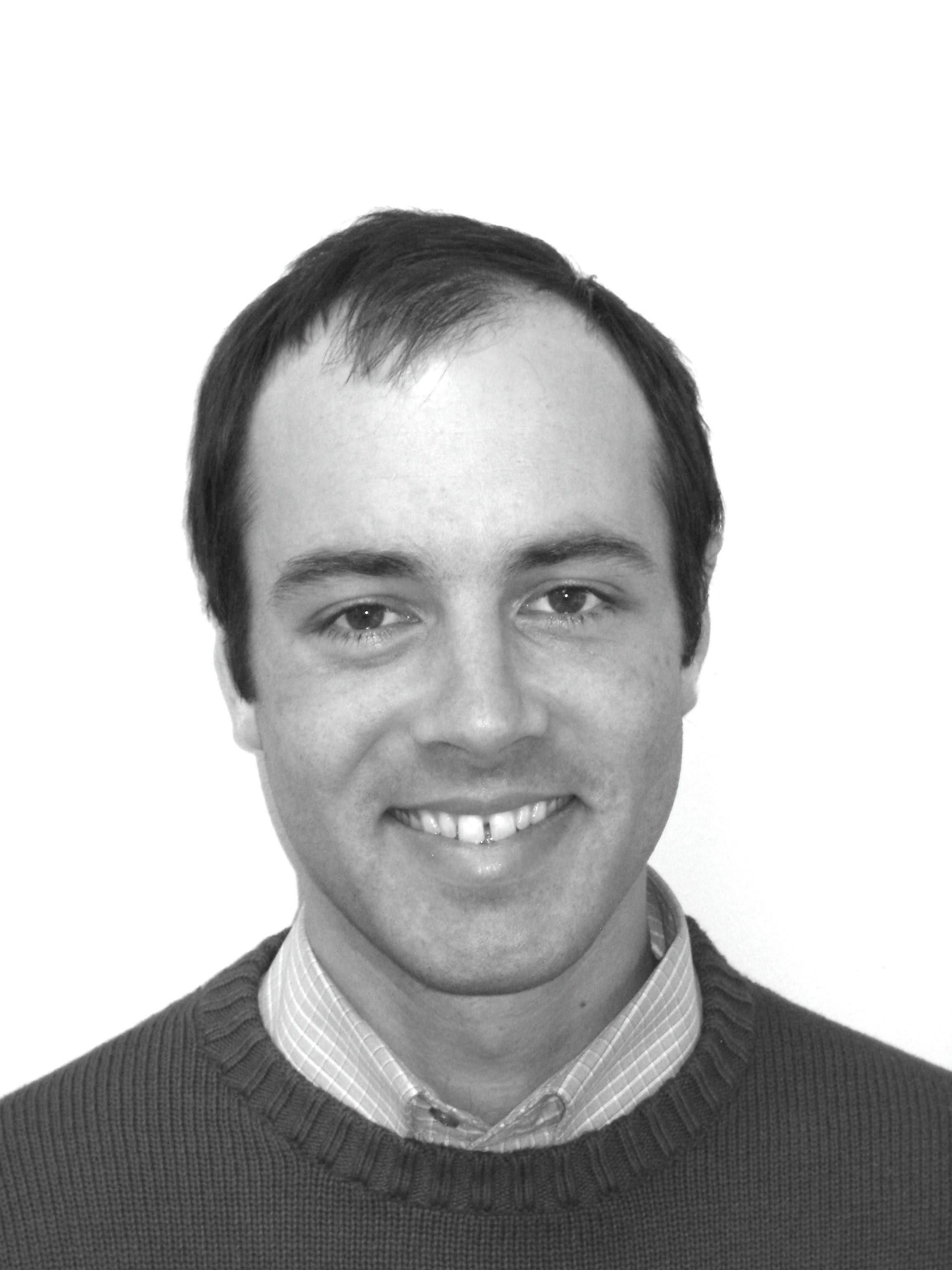 Thomas is a meteorologist focusing on the combination of theory, observations, and modelling. He has specialized on a variety of scales ranging from meso, synoptic, to large-scale flow and participated in several field campaigns addressing meso-scale atmospheric flow and atmosphere-ocean interactions. Since 2015, Thomas is the director of the NFR funded Norwegian Research School on Changing Climates in the Coupled Earth System (CHESS). His specific research interests are devoted to interaction between different space and time scales as well as the influence of diabatic processes in the atmosphere. IHe is currently leading research projects focusing on high impact weather in the Arctic, e.g., Polar lows and topographically initiated wind events with an increasing interest on atmosphere-ocean-ice interactions. In 2012 he was elected as a member of the International Commission for Dynamic Meteorology and became its elected president in 2019. He led several international workshops, often focusing on Arctic processes and atmosphere-ocean-ice interaction. He was awarded the prize for best lecturer of the academic year 2012/2013 at the Faculty for Mathematics and Natural Sciences at the University of Bergen and nominated for the IAMAS early career scientist medal in 2013. In 2013, Thomas was nominated as Norwegian delegate to the Atmospheric Working Group of the International Arctic Science Committee (IASC), of which he was elected chair from 2015 until 2019.
Thomas is a meteorologist focusing on the combination of theory, observations, and modelling. He has specialized on a variety of scales ranging from meso, synoptic, to large-scale flow and participated in several field campaigns addressing meso-scale atmospheric flow and atmosphere-ocean interactions. Since 2015, Thomas is the director of the NFR funded Norwegian Research School on Changing Climates in the Coupled Earth System (CHESS). His specific research interests are devoted to interaction between different space and time scales as well as the influence of diabatic processes in the atmosphere. IHe is currently leading research projects focusing on high impact weather in the Arctic, e.g., Polar lows and topographically initiated wind events with an increasing interest on atmosphere-ocean-ice interactions. In 2012 he was elected as a member of the International Commission for Dynamic Meteorology and became its elected president in 2019. He led several international workshops, often focusing on Arctic processes and atmosphere-ocean-ice interaction. He was awarded the prize for best lecturer of the academic year 2012/2013 at the Faculty for Mathematics and Natural Sciences at the University of Bergen and nominated for the IAMAS early career scientist medal in 2013. In 2013, Thomas was nominated as Norwegian delegate to the Atmospheric Working Group of the International Arctic Science Committee (IASC), of which he was elected chair from 2015 until 2019. -
Irina Sandu - European Center For Medium Range Weather Forecasts, United Kingdom
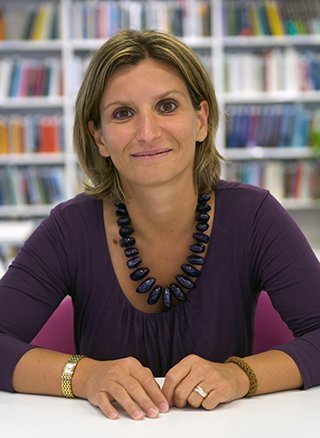 Irina earned her PhD from Meteo-France and Universite Paul Sabatier, Toulouse in 2007. Her PhD research based on Large-Eddy Simulations helped demonstrating that aerosol-cloud interactions are far more complex than initially thought and that the current parametrizations used in climate models are inadequate. Irina then spent a couple of years as an Alexander von Humboldt post-doctoral fellow at the Max Planck Institute for Meteorology in Hamburg (2008-2010). Irina joined ECMWF in 2010, and is now leading the Physical Processes Team. Her research has so far covered boundary layer clouds and the factors controlling their distribution, aerosol-cloud interactions, turbulent diffusion in stable conditions, orographic drag and land-atmosphere coupling. At ECMWF, Irina's work aims at improving the representation physical processes (both stable and cloudy boundary layers) in the Integrated Forecasting System (in climate models), and at understanding the impact of surface drag on the large scale atmospheric circulation, which were subject to some of the most longstanding errors of the ECWMF forecasts. In recent years, Irina played an instrumental role in reviving the interest of the international community for the drag processes, and the orographic drag in particular, by highlighting their importance for the large-scale circulation and the uncertainties related to their representation in models. Irina is also now coordinating polar prediction related activities at ECMWF, particularly in the context of the ongoing WMO Year of Polar Prediction and the H2020 project APPLICATE.
Irina earned her PhD from Meteo-France and Universite Paul Sabatier, Toulouse in 2007. Her PhD research based on Large-Eddy Simulations helped demonstrating that aerosol-cloud interactions are far more complex than initially thought and that the current parametrizations used in climate models are inadequate. Irina then spent a couple of years as an Alexander von Humboldt post-doctoral fellow at the Max Planck Institute for Meteorology in Hamburg (2008-2010). Irina joined ECMWF in 2010, and is now leading the Physical Processes Team. Her research has so far covered boundary layer clouds and the factors controlling their distribution, aerosol-cloud interactions, turbulent diffusion in stable conditions, orographic drag and land-atmosphere coupling. At ECMWF, Irina's work aims at improving the representation physical processes (both stable and cloudy boundary layers) in the Integrated Forecasting System (in climate models), and at understanding the impact of surface drag on the large scale atmospheric circulation, which were subject to some of the most longstanding errors of the ECWMF forecasts. In recent years, Irina played an instrumental role in reviving the interest of the international community for the drag processes, and the orographic drag in particular, by highlighting their importance for the large-scale circulation and the uncertainties related to their representation in models. Irina is also now coordinating polar prediction related activities at ECMWF, particularly in the context of the ongoing WMO Year of Polar Prediction and the H2020 project APPLICATE. -
Jonathan (Jonny) Day - European Center For Medium Range Weather Forecasts, United Kingdom
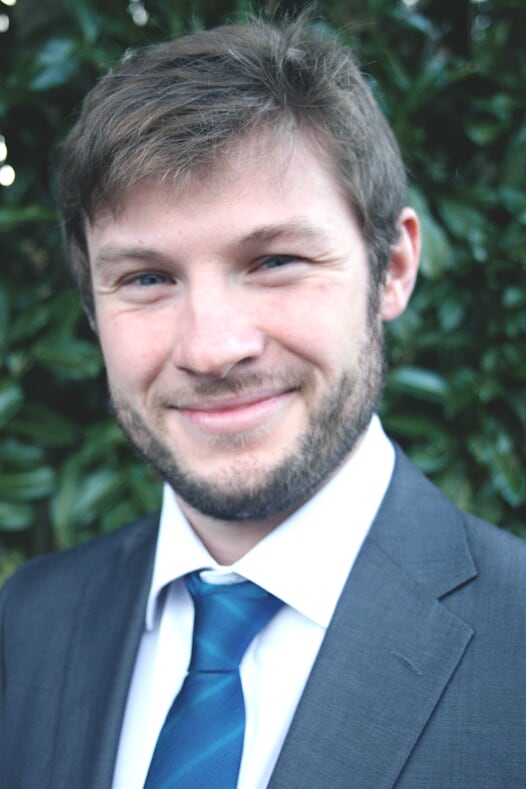 Jonny is a member of the diagnostics team at the European Center For Medium Range Weather Forecasts (ECMWF). His work focusses on coupled processes and predictability in cold climate zones. He has been a steering group member of the WMO – Polar Prediction Project since 2013. Before joining ECMWF in 2017 Jonny was an AXA Post-Doctoral Research Fellow at the University of Reading. His research focussed on Arctic cyclones, sea ice prediction and polar climate processes. Before this he was a Post-Doc at the Japan Agency for Marine Earth Science and Technology (JAMSTEC). He received his PhD from the University of Bristol in 2011.
Jonny is a member of the diagnostics team at the European Center For Medium Range Weather Forecasts (ECMWF). His work focusses on coupled processes and predictability in cold climate zones. He has been a steering group member of the WMO – Polar Prediction Project since 2013. Before joining ECMWF in 2017 Jonny was an AXA Post-Doctoral Research Fellow at the University of Reading. His research focussed on Arctic cyclones, sea ice prediction and polar climate processes. Before this he was a Post-Doc at the Japan Agency for Marine Earth Science and Technology (JAMSTEC). He received his PhD from the University of Bristol in 2011.
Taking our knowledge to society: The case studies
The case studies focus on extreme events of Arctic weather and climate on different time scales, and their impact on a specific aspect of society or daily life in the Arctic and beyond. Severe Weather Europe has a good collection and documentation of unusual weather events in Europe. Visit the APPLICATE website for examples of case studies done by the project so far.
-
Renewable energy
Renewable energy comes from natural sources such as sunlight, wind, rain, etc. that offer environmental, economic and energy-security benefits. On overview of renewable energy resources in the Arctic can be found in the Arctic Renewable Energy Atlas. However, natural sources also bring challenges, since they are strongly affected by weather and climate variability, which cause wide variations in both energy supply and demand. Forecasting this variability at different timescales is crucial for efficient energy management. For instance, a growing number of windparks is operating or planned (e.g., offshore and along the coast of Norway).
Some challenges for renewable energy production in the Arctic are:
Case study E1 - Renewable energy production in the Arctic: Periods of too low or too high wind speed that may hinder energy production to meet demands. Therefore, it is important to investigate when, where and for how long may these conditions occur?
Case study E2 - Icing on wind parks: Cold temperatures and high wind speeds than can lead to ice accumulations on the blades of wind turbines (icing). Such icing may require increased maintenance, may cause severe damage to the windmills, resulting in less reliable energy production in winter. What weather parameters are crucial for such icing, and how can they be forecasted? -
Health in the Arctic
In an increasingly warming Arctic, weather and climate phenomena that typically characterise southern locations, tend to advance northwards. That is the case of heatwaves, which are becoming more frequent and intense in polar regions, also favouring the occurrence of wildfires in areas where they haven’t been common in the past.
Some challenges for health in the Arctic are:
Case study H1 - Heatwaves & fires: During a heatwave in July 2018, 11 fires occurred above the Arctic Circle and caused air pollution and severe threats to local infrastructure. For large parts of northern Europe, increased risk of wildfires was predicted for summer 2018. Can Arctic heatwaves be anticipated using climate predictions? And would it be possible to predict the risk of fires associated to heatwaves, i.e., to send an early warning to civil services? How can the risk of forest fires be mitigated in the long-term future?
Case study H2 - Human health and comfort: Elevated temperature and humidity may also affect human health and comfort. Initiatives such as the Inuit Mental Health and Wellness map offers an inventory of programs that focus on health and comfort-related issues. Certain population groups are particularly susceptible and coping strategies will need to be developed in northern countries. What can be done to better forecast future heatwaves in order to minimize human discomfort and health problems? -
Safety/Insurance issues in the Arctic
Due to climate change, the frequency and intensity of weather-related risks and hazards (e.g., storms, iceberg formation, cold spells, etc.) may change.
Some challenges for safety and the insurance sector in the Arctic are:
Case study S1 - Future risks for hazards: Can we expect an increased risk from certain weather- and/or climate-related natural disasters in the Arctic that affect everyday operations at sea, transport, tourism, search and rescue, or other activities? Which information could be provided to support adaptation and preparedness, and thus continue safely performing these activities?
Case study S2 - Heat and rockfalls: An increased risk from rockfalls in mountainous regions has been identified during exceptionally warm periods, for example on Lofoten mountains in northern Norway. Rockfalls are common in areas with mountain permafrost. During exceptionally warm periods, could these events become more common in areas without permafrost? How could this be assessed? -
Biodiversity and conservation
Because of climate change, parameters of the atmosphere and the ocean (e.g. temperature, salinity) as well as ice cover are rapidly changing in the Arctic. These changes are happening too fast for wildlife to adapt to the new habitat conditions.
Here there are some examples:
Case study B1 - Sea ice and biodiversity: The loss of sea ice, which is rapidly changing both in extent and thickness, is pushing polar bears into communities, making walruses no longer able to haul-out on sea ice, and putting caribou at greater risk of falling through thin ice as they cross between islands (just to give a few examples). How can a better prediction of sea ice extent help identify those habitats that are more at risk (e.g. of changing or disappearing)?
Case study B2 - Climate variables and marine biodiversity: Marine habitat is also impacted by changes in the temperature of the atmosphere as well as ocean temperature and salinity. How can we forecast changes in temperature and salinity (or other variables) that move beyond a range of tolerance of certain species (e.g. fish or algae), making their typical habitats unsuitable, and affecting migration and habitats shifts? (e.g. autochthonous species disappearing from one area, exotic/invasive species extending their range to the Arctic habitats?) -
Local infrastructure
Case study L1: Local infrastructure and rain on snow events: In winter, rain on snow events are increasingly common in Arctic coastal areas and present challenges for local infrastructure and traffic. For example, the roofs of private houses and large public buildings (e.g. schools, kindergartens, sports facilities, factories) that collect snow may become heavy and unstable after rain on snow events. In addition, rain on snowy roads and walkways creates icy and slippery conditions that are challenging for the every days life of local residents and the regional transport of goods. How can winterly temperature and precipitation forecasts be adjusted to suit the needs of local communities and regional transport industry?
Participant case studies
The students developed new case studies using weather and climate predictions within the context of APPLICATE as group work. The results of the practical tasks will are presented below and in a dedicated webinar.
-
Predicting the 2018 Heatwaves and Forest Fires in Sweden
Authors: Alena Dekhtyareva, Iris Mužić, Julius Eberhard, Mikhail Latonin, Priyanka, Ross Alter. In the summer of 2018, Sweden experienced a heatwave and series of wildfires caused by a combination of a stable high-pressure system, long-term background warming and a pronounced drought. The event had pronounced negative environmental and societal consequences. Three groups of stakeholders were identified to have been impacted by these events. Residents were affected by increased health risks and evacuations, farmers incurred financial losses and administrations, as well as different national governments, organized aid campaigns and programs. The knowledge necessary for predicting such heatwaves includes quantification of increased risks in the context of the amplified recent warming of the Arctic and production of reliable seasonal weather forecasts. In both aspects, shortcomings have been identified. While uncertainty exists regarding the role of long-term changes in atmospheric circulations in influencing the risk of future heatwaves, seasonal forecasts for the summer of 2018 suffered from inaccurate capturing of the geographical extent of the heatwave and from an underestimation of the diurnal temperature cycle. Data and experience from the 2018 heatwave and fires in Sweden could be used to assess future impacts on society by such events. International cooperation, both politically and scientifically, is expected to increase overall adaptability to more frequent heatwaves and fires in the future. Read the full case study here. -
Influence of ENSO on the Arctic climate
Authors: Isabel Ramos and Galina Jonat. One of the most important climatic phenomena on Earth is the El Niño/Southern Oscillation due to generate impacts around the world. Recent studies have found that ENSO - through teleconnections - also has an impact on the Arctic variability modes, such as the North Atlantic Oscillation and the Quasi-Biennial Oscillation, that again have an impact on the Jet Streams and the Polar Vortex. However, the magnitude of the impact through these teleconnections has not been modelled in a realistic way yet. Read the full case study here. -
Future hazard risks from Greenland Ice Sheet mass loss
Authors: Fadzil Nor, Ankur Dixit, Susanne Davidson. Greenland ice sheet mass loss: Potential consequences for mid-latitudes with a focus on the possibility of a tsunami occurrence in Scotland. A tsunami affecting Scotland may appear as a hazard with low likelihood, albeit high impact, if it were to occur today. However, such events have happened in ancient history and their triggering factors may have been linked to climatic changes. In this case study we investigated possible linkages between an increased mass loss of the Greenland ice sheet induced by Northern Hemisphere warming and the resulting glacial isostatic adjustment with its potential to generate seismic activity. Whilst acknowledging that seismicity alone can trigger tsunamis, we focussed predominantly on submarine landslides as main – difficult to gauge – tsunami-inducing events, thereby taking into account accelerated sediment loading and other potential factors. Referring to the well-studied historic Storegga slide and associated tsunami which inundated coastal regions in several countries, we identified a significant proportion of Scotland’s total population and vital economic sectors to be potentially exposed and vulnerable in case of a tsunami occurrence, although a formal vulnerability assessment was not part of the case study. In summary, we found that the complexity and unpredictability of seismic activity and tsunamigenic submarine landslides, together with a fragmentation of scientific evidence over a wide range of disciplines, urgently requires increased cross-disciplinary collaboration and robust climate projections to aid policymakers in assessing a potentially by rapid Arctic climate change altered hazard risk situation. Read the full case study here. -
Flushed away: Addressing the types and hazards of flash floods in the Arctic
Authors: Michiel de Bode, Ines Sanchez-Rodriguez, Joseph Martin. Flash floods pose significant risks to the life and property of Northern communities. In the Arctic, they are often caused by the emerging threat of heavy precipitation as well as glacial retreat and ice-jams in rivers. Efforts should be focussed to improve predictive capabilities and communication of flood risks to the public. Further, protection measures can be taken by local governments and citizens to improve the flood-resilience of these communities. Read the full case study here. -
The 2012 Record Low Sea Ice Minimum and its Effect on Arctic Biodiversity
Authors: Adrià Blanco, Céline Gieße, Marlen Kolbe, Karla B. Parga Martínez, Kruti Upadhyay, Virryna (Yue) Wu. Rising temperatures due to global warming and Arctic amplification have caused a substantial loss of Arctic sea ice over the past decades. In September 2012, the Arctic sea ice extent reached its up to now minimum of only 3.4*106 km². This massive sea ice loss has been caused by a storm event, bringing heat and moisture from lower latitudes and shearing off a sizeable segment of the already thinned and weakened ice cover. The loss of sea ice has tremendous consequences for Arctic marine mammals, which are actively or passively dependent on the sea ice. Observations of polar bear populations show an overall declining population and changes in habitat locations. The most directly affected group of stakeholders are native Arctic communities, which are increasingly put at risk in a changing Arctic climate and ecosystem. Further groups of stakeholders affected by Arctic climate change and sea ice loss are public and nation-related entities as well as the private sector. More observations and research about ocean circulation, heat transport and atmospheric forcing like storms will allow for more accurate Arctic sea ice predictions. Moreover, a closer collaboration between stakeholders and science departments is necessary to achieve improved adaptation strategies to the changing conditions in the Arctic. Read the full case study here. -
Hydropower in Iceland and its sensitivity to climate anomalies
Authors: Alma Karabeg, Kody Kight, Ferran López Martí, Kamilla Oliver, Sara Octenjak. Read the full case study here.
Course Organizers
- Andrea Schneider - Association of Polar Early Career Scientists (APECS) / UiT The Arctic University of Norway (Course Administrator), e-mail: This email address is being protected from spambots. You need JavaScript enabled to view it.
- Natalie Carter - University of Ottawa, Canada
- Luisa Cristini - APPLICATE / Alfred Wegener Institute, Helmholtz Centre for Polar and Marine Research, Germany
- Gerlis Fugmann - Association of Polar Early Career Scientists (APECS)/ Alfred Wegener Institute, Helmholtz Centre for Polar and Marine Research, Germany
- Deniz Vural - Istanbul Technical University Polar Research Center
- Paul Rosenbaum - Uppsala University, Sweden
- Fiona Tummon - Federal Office of Meteorology and Climatology MeteoSwiss, Switzerland
- Kirstin Werner - International Coordination Office for Polar Prediction (ICO) / Alfred Wegener Institute, Helmholtz Centre for Polar and Marine Research, Germany


